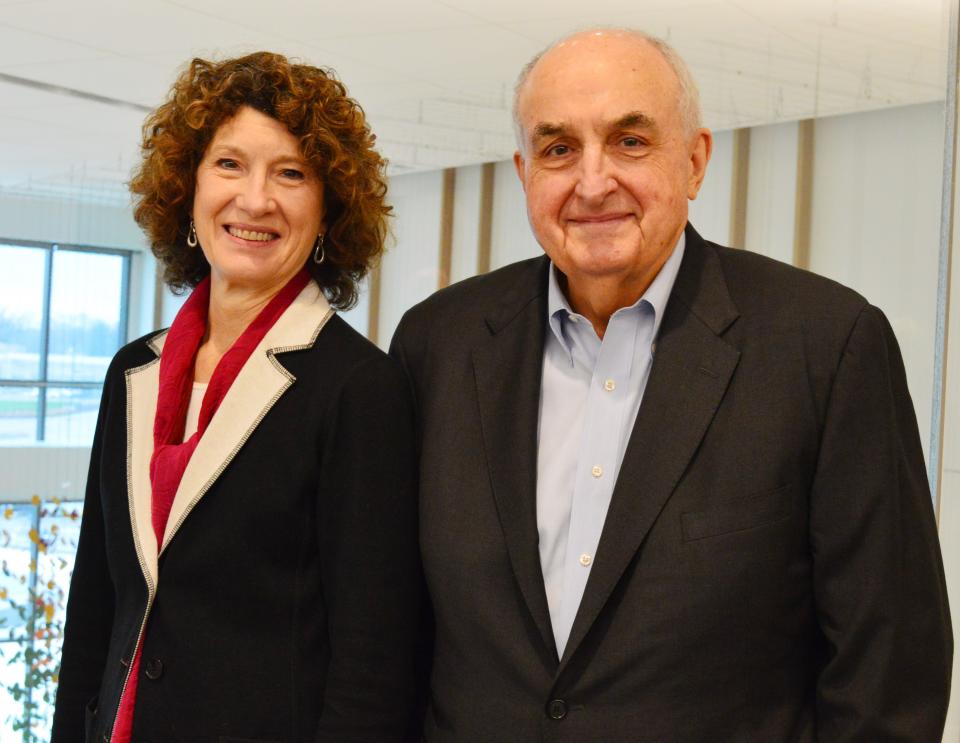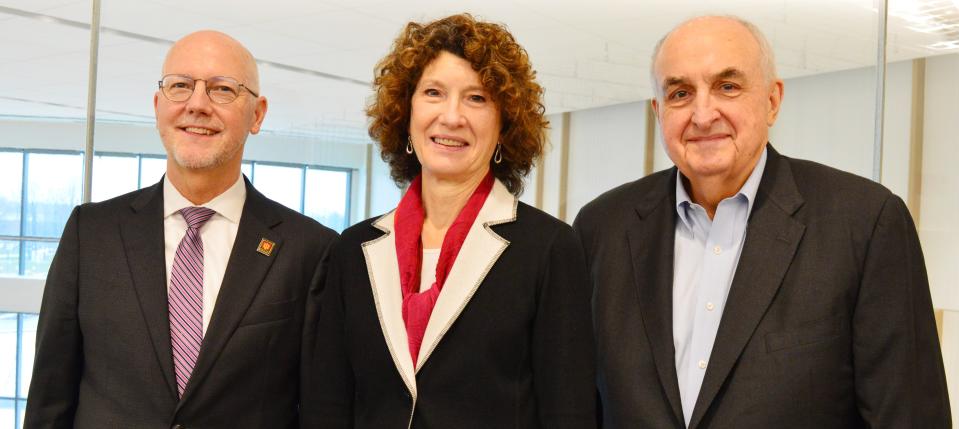McRobbie family gifts $500,000 to expand mental health services at IU Health
New services are coming to IU Health to help people in southern Indiana struggling with their mental health.
The McRobbie family has made a gift of $500,000 to IU Health, which was subsequently matched by the health provider network, to expand its behavioral health services. The new services will launch July 1.

IU Health's big donor: Who are Michael and Laurie Burns McRobbie?
Michael McRobbie served as the 18th president of Indiana University from July 1, 2007, to June 30, 2021. McRobbie also has a long-term relationship with IU Health. He previously served as vice chair of the board of IU Health, one of the largest hospital systems in Indiana with an operating budget of over $6 billion.
In addition to her role as IU first lady, Laurie Burns McRobbie has had a long career in higher education informatics, with a special interest in diversity and inclusion in STEM disciplines. She has also delved into philanthropic work, participating on the boards of a number of nonprofits.
IU Health has $1 million for behavioral health. Where is the money going?
Expanded programming at IU Health's behavioral health facilities. The facilities, mainly housed on the Bloomington hospital's sixth floor, have been renamed "The Michael A. and Laurie Burns McRobbie Behavioral Health Center."
Part-time positions to fund peer counselors
New on-site training for Indiana University students
Enhancement of other mental health services, with a focus on 18- to 34-year-old behavioral health patients.
Addressing the stigma at IU:Indianapolis Colts owners help open mental health institute at Indiana University
Mental health is drastically underfunded by government, philanthropy. Why?
Though mental health has been a hot button topic over the last several years, that dialogue rarely translates into dollars.
Funding for mental health care is extremely low, with around 2% of global health funding and 0.5% of philanthropic health funding dedicated towards treatment. By contrast, health care areas for issues like cancer rake in hundreds of millions of dollars each year from private donations alone.
"We're well aware of the fact that areas like care for cancer or cardiac issues are very well supported philanthropically," Michael McRobbie said. "Behavioral health probably has been less visible. I mean, there is some stigma."
In 2022, around 10,000 patients were seen at the IU Health's IU Regional Academic Health Center for behavioral health issues, with 30% of them ages 18 to 34. While IU students have access to mental health services on campus, IU Health Bloomington Hospital at the RAHC provides acute and emergency care for more serious cases.

What is peer counseling?
Peer counseling is an emerging mental health treatment that many health care providers like IU Health are adding to their tool box.
Peer counselors are counselors who have undergone issues or situations that are similar to the ones that a patient currently is experiencing. By forging a connection through shared experiences, it can make the patient feel more comfortable sharing what they are going through.
A peer counselor often works in conjunction with other care and provides a through line to a patient's care journey. They provide consistency by staying with the patient even as their situation or health provider changes.
As Brian Shockney, president of the IU Health's South Central Region, notes, peer counselors come from a variety of backgrounds, ranging from being trained on the job or already having a master's degree in a health science field, because it's their lived experiences that are at the heart of their profession.
Michael and Laurie McRobbie said they were persuaded to invest in peer counseling after reading numerous recent studies showing the positive effects of its long-term use.
Indiana University students to have more on-site training at IU Health
Some of these peer counselor roles will be filled by college students, with preference given to those from IU health science units, including the schools of medicine, nursing, social work, public health and education.
Since peer counseling has seen some early adoption across the health field, gaining this skill set will be beneficial for students in their long-term career ambitions.
“It also helps the provider of peer counseling. These are sometimes individuals who have themselves gone through this, so this becomes another mechanism for experiential learning for them," Laurie McRobbie said. "I think for those who are also suffering from some degree of distress themselves, the ability to help someone else is healing for them. That's kind of a win-win sense. Also, going back to stigma, it helps bring all that out into the open in a very supportive way."
This article originally appeared on The Herald-Times: IU Health Bloomington to soon offer mental health peer counseling

